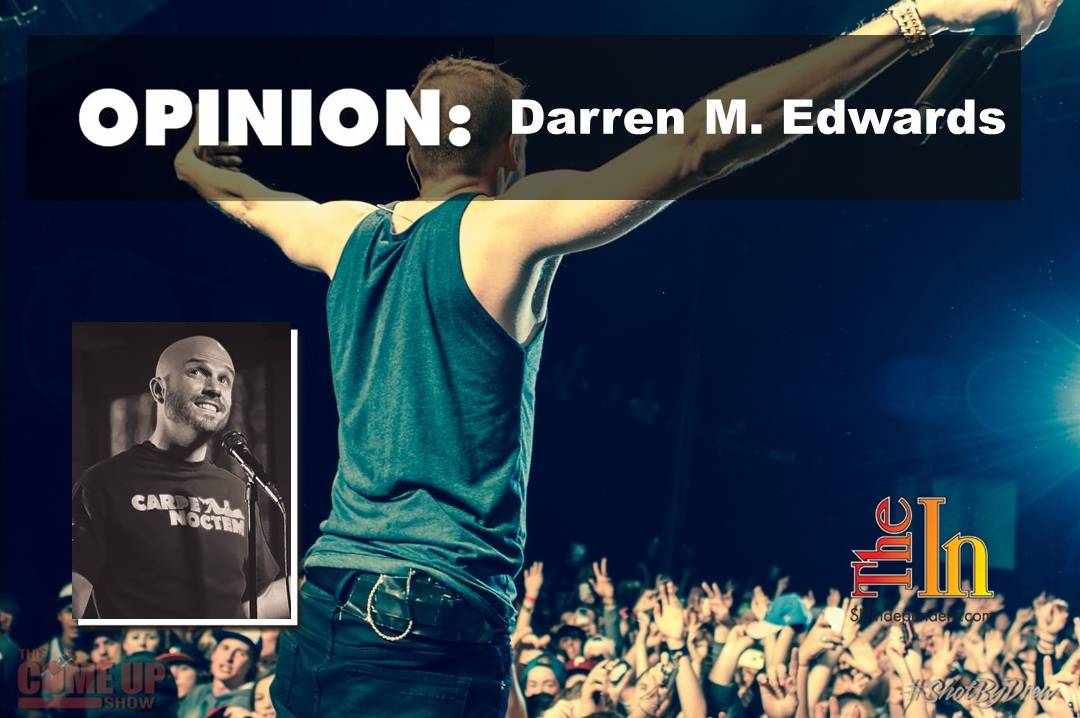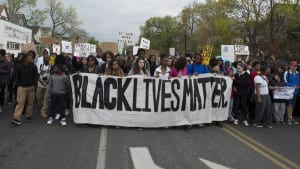
For award-winning rapper Macklemore, stepping into controversy surrounding race isn’t new. His new single “White Privilege II” doesn’t so much step into race as it does jump. And while white rappers and hip-hop artists seem to have a difficult time avoiding racial controversy for obvious reason stretching from cultural appropriation to simply saying or doing really stupid things (Iggy Azalia, Miley Cyrus, Asher Roth, etc.), this feels different.
According to Macklemore, his latest single, “White Privilege II”, was inspired by an experience he had attending a Black Lives Matter protest in Seattle. As he explained in an interview with NPR, “There’s this moment of injustice and I am feeling so compelled that I need to do something, yet also stepping into that space in my own head of, ‘Should I be here? Is there something that I’m going to get called out for, being here? Am I going to distract more than actually do any good by being present here?’” The resulting song has caused everything from eye rolls to praise or angry rants.
Before really digging into the issues that arise in “White Privilege II,” I need to explain a handful of terms. White supremacy isn’t just the KKK. It’s anything that holds one person as inherently superior to another because they’re white. Privilege doesn’t mean that your life is easy or that you don’t have struggles. It does mean that you are exempt from certain struggles, obstacles, and challenges that other people face. For example, I’m a man; I don’t have to worry about making less than my peers because of my gender.
I also want to explain what I mean when I use the term “white community.” It never fails to surprise me when I hear someone say, “Why don’t we have a white history month or white pride festivals?” There is a reason so many nonwhite groups have a sense of community pride. They’ve spent generations coming together to fight oppression and inequality. That is a fire I, as a white person, have never had to walk through. So when I talk about the “white community,” I am not trying to employ that term in the same way that, say, the black community does. The things that link us (white people) as a community aren’t shared injustice or discrimination but shared privilege and a shared need to look introspectively and find ways to address the issues of racism within ourselves.

Through “White Privilege II,” Macklemore shares his personal struggle with wanting to help fight for justice and equality for the people whose struggles built the music and industry from which he prospers. He explores the way his privilege has helped him advance within that industry (for example, it’s much easier for a white rapper to tap into the white audience).
But, for me, the crux of the song is about seeing the oppression of other people — oppression at the hands of a system that grants white people so many of the privileges others are denied — and feeling an overwhelming need to join their fight but not knowing how or even if you should. While I am not a rapper, I have felt similar struggles.
The thing I love about this song is that by asking these questions in the way he does, Macklemore is — at least in part — working toward the solution. This is a song written by a white guy discussing racism with … other white people. That is his target audience with this song and its message. It is also the answer to his question, ”Where can I, as a white person, fit in the discussion of racism?”
One of the most common complaints I hear about white people entering the discussion of race and racism is that we try to act like we have all the answers to problems we know little to nothing about. Within this discussion, it is not so much our place to spout answers as it is our place to ask questions.
This brings me to the second biggest complaint I hear about white people entering this discussion: Stop acting like it is the job of every black person you know to educate you and raise your level of racial awareness. Your black friend or colleague isn’t your ticket to a free course in black history. It is our job to educate ourselves. Do some research with that neat thing called the Internet. Go to the library. Then avoid the need to show off to your black friend or colleague how aware and un-racist you are.
So if my place in the discussion of race and racism is primarily to ask questions, but I’m not supposed to force them on black people, whom should I ask?

As Macklemore demonstrates in “White Privilege II,” I should ask myself and other white people. I need to be willing to ask myself what racist ideas I’m subconsciously holding on to.
Do I ever try to make other peoples’ struggles about myself? As Macklemore states in the song, “We’re more concerned with being called racist than we actually are with racism.” How can I celebrate someone else’s culture without appropriating it? Do I try to play color blind? Note: the idea of being color blind as an answer to racism is fundamentally flawed. Like Macklemore sates in the song, “We are not we.” As a white person, if I am going to make any personal progress in my fight against racism, I must work to understand our differences, not ignore them. After all, it’s much easier to say that we (as a society) have moved past racism when we’re not the ones having to face it every day. Yes, it is easier to make a token effort and claim that racism is dead (after all, we have a half-black president), but that only emphasizes that as a white person I have the privilege of taking the easy way out. It’s important to find ways to make sincere and continuous effort. And as Jamila Haggerty, who accompanies Macklemore in the song, pointed out to NPR, that effort — an authentic effort — is crucial. Haggerty noted, “To me, I feel like it’s an important thing not to just consider yourself an ally by showing up, but to really investigate what your role can be in a productive way.”
Toward the end of “White Privilege II” a series of voice over commentaries loop into the song. One of these, I feel, sums this whole idea up nicely, “The best thing white people can do is talk to each other. And having those very difficult, very painful conversations with your parents, with your family members. I think one of the critical questions for white people in this society is what are you willing to risk, what are you willing to sacrifice to create a more just society?” We need to be proactive, sincere, authentic, and determined. We need to ask the hard questions. We need to be willing to sacrifice. We (as white people) need to take it upon ourselves to fix us.
*For the complete NPR interview with Macklemore and Jamila Haggerty click here.



